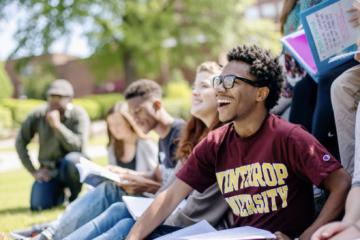Oct. 12 has historically been celebrated as Columbus Day, a day when Americans celebrate Christopher Columbus’s journey to the Americas in 1492.
However, the truth behind Columbus’s exploration is much darker than its present holiday. Children as young as eight years old were sold into slavery, while today’s students take the day off of school to celebrate. The crew Columbus brought with him to the Americas spread disease that the indigenous populations had not built an immunity against, causing millions of deaths. Christopher Columbus mapped parts of the Americas, but one cannot discover land if families already live there.
Indigenous Peoples Day began as an official holiday in 1992. Over the past 30 years, multiple states around the United States have begun recognizing this as a holiday. The point of Indigenous Peoples Day is to celebrate the diversity of the indigenous American cultures — in direct contrast to celebrating the man who helped assimilate them into early colony life.
It has taken this long for the United States to celebrate the cultural diversity of the indigenous population because quite frankly, these groups were not respected until recently. Between the assimilation schools of the 1700s and 1800s to the sterilization of indigenous women in the 20th century, indigenous Americans have been oppressed and cast off by the majority of the population. Only recently has the United States begun to honor and respect the history and culture of these groups.
Why celebrate the indigenous populations? These communities have been one of the most oppressed in American history. Tribes were pushed from their lands by the government in the 1800s, but they were the subject of propaganda and racism before the United States even became a nation. Columbus himself wrote that some of the indigenous communities in modern Central America were “savages” and “would make fine servants.”
The accounts of Columbus’s time in the Americas reports the rape of indigenous women, enslaving villages, and murdering the indigeous populations for fun. Bartolome de las Casas wrote in his account of their journey that his fellow crewmates “placed bets as to who could split a man in two or cut off his head with one strike of the sword.” De las Casas admitted that these men would also steal indigenous infants, only to murder them in front of their mothers.
Countless indigenous lives were lost to Columbus’s cruelty, as well as multiple other European colonizers. To celebrate their legacy by idolizing their murderers would be insulting. We do not celebrate the work Hitler accomplished during the Holocaust. Whether Jewish or indigeouns blood was split – it is still a crime against humanity.
A solution to this under representation of indigenous culture would be to celebrate their cultures and communities for the entire month of October. Hispanic Heritage Month ends on Oct. 16, so beginning an Indigenous Heritage Month after the sixteenth would not undermine a different culture’s celebration.
Having an Indigenous Heritage Month would also allow schools to open up accurate discussions about indigenous populations. In schools, students are taught that the indigenous Americans were “savage,” and that the English colonists tried to help by teaching them about English culture. In reality, tribes were forcefully assimilated into colony culture, given blankets that the colonists knew were infested with disease as acts of “wellbeing,” among many other acts of cruelty. This is proven in William Trent’s 1763 diary, as he explicitly recounts taking blankets from the local smallpox hospital and giving it to local indigenous tribes as a means of “reducing the population”.
If indigenous cultures and history were accurately taught and celebrated, then their descendants would have more opportunities to understand the sacrifices and struggles that their ancestors went through. Indigenous history in the United States is white washed, or swept under the rug completely.
Replacing Christopher Columbus’s celebration of rape and murder with one of the families of his victims would also send a message about abuse. Instead of praising the abuser, a message of solidarity would be implemented. Modern abuse is not tolerated, so why should there be a holiday dedicated to abuse that happened 500 years ago?
Christopher Columbus came to the Americas in hope of finding a quicker passage to the spice trade. He died a monster in the eyes of the indigenous populations, but a hero in the eyes of Europeans. There is nothing to celebrate about him, quite frankly. You cannot discover a place if a group of people are already inhabiting it.
Indigenous Peoples Day, or Indigenous Heritage Month, is a great celebration to finally honor those who Columbus and other colonizers fought to destroy. This celebration is a legacy to be proud of. It allows their history to be taught, so that the Americas overall can have a more compassionate future.
Graphic by Katelyn Miller





Yes ! Columbus was a tyrant to the indigenous peoples of the New World ! Im very happy to take away a day that honors him and we Europeans who have propheted from his crime which praises Christianity ! Yes so much horror came to the new world with Christianity ! 😳